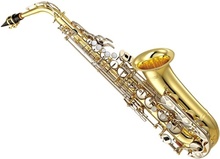The world being, y'know, a stage, it's bound to hold some players. There's hardly any more honest way for a musician to get paid than to hit a city's sidewalks and stairs, the amphitheaters of our time, and let the public evaluate. In fact, these days, it's about the only way for a musician to get paid. On a recent historical trip to the East Coast, the quality of street performers proved high.
Washington, D.C.:
1. We're at the Lincoln Memorial. The vibe is heavy, quiet, emotional, many black tourists pondering slavery. Martin Luther King Jr. gave his "I have a dream" speech on these steps. A man from the Jamal Jackson Dance Company asks if we want to see a performance, beginning soon. I am too dishragged from tramping the Mall in the sun, but Deb stays. Later she reports an inspired representation of the O.J. story, employing a dozen dancers and a few musicians. The message: O.J. was guilty, but considering thousands of African-Americans unjustly murdered and imprisoned, his acquittal took a small step toward balancing the books. The audience consists of three people. Deb empties her wallet.
2. We're dining on Du Pont Circle. Across the street, a black dude my age is twanging his hollow-body electric guitar through a small amp with a healthy dose of reverb. He does 10 Hendrix songs ("Hey, Joe, where you going with that gun in your hand?"), then 10 Marley songs ("I Shot the Sheriff"), then "Born Under a Bad Sign" and some other blues. He offers inexact abbreviations, just letting the music seep out of his fingers and the corners of his memory. Hendrix and Marley and Albert are dead; these are HIS songs now.
3. I'm walking the streets a few blocks from the White House, a little lost. An Obama motorcade ripped through here yesterday, and I'm thinking about how, since JFK, an ambulance is required to bring up the rear. Turning a corner, I run into a quartet of young black musicians -- drums, bass, keys, guitar -- wailing on some modern R&B, full of energy, oozing with talent, louder than f*ck and taking up the whole sidewalk. Jefferson Airplane used to pull off stuff like this; more power to the youth.
4. A sudden rainstorm has abated, and we're meandering back from a museum past the Capitol building. It's a few days after the shootings at an Orlando gay nightclub, and 20 protesters face the Capitol, chanting, "No guns! Stop the killing!" Music to our ears. The following afternoon, Nancy Pelosi and a number of other lawmakers end a 25-hour sit-in they've staged inside to shame Republicans who have slunk out of town after blocking votes on any form of gun control.
Philadelphia:
5. John Coltrane lived in this city for 15 crucial years. A few blocks from Independence Hall, the neighborhood changes from buttoned-up historic sites to tear-it-up bars and jacked-up street life. On the pavement, a middle-aged black alto saxophonist gushes modal scales (no "tunes") with a spontaneity Coltrane would have approved, his tone full of unTranelike dirt and smoke.
New York:
6. So many people are lounging on the steps of the Metropolitan Museum of Art and around the two flanking fountains that I can hardly pick my way through. Facing the steps, a black musician switches between joyful bebop on alto (Bird introduced that to the world not far from here) and clean abstractions on clarinet. Damn, he's good. Reminds me of Don Byron, who performed in a Met gallery a few months ago. Naw . . .
7. The biggest Gay Pride Parade ever blares downtown all day, bus after double-decker bus packed with costumed rebels thumping party anthems, while several blocks of midtown Sixth Avenue are closed to traffic for a street fair celebrating Jewish culture. Around the latter, a big black dude is belting reggae soul along with a recorded backing track. His powerful amplifier makes him louder than a jet engine; his gritty voice has character and range. He should be famous; maybe he is. Traffic is clogged and cabs are helpless, but that's what the subway's for.
8. In a shaded patio at the south end of the High Line walkway, a 40-year-old white cellist in a black tux plays Bach, a towel placed on his left thigh to keep the bow resin off his trousers. His time is impeccable, his feel is effortless, and his eyes are closed, sealing him off into a peaceful world 400 years past. Swallows swoop into the nests they've built in the corrugated steel above. It's beautiful, dignified and sad.
That's not all, but it's all I can remember.


